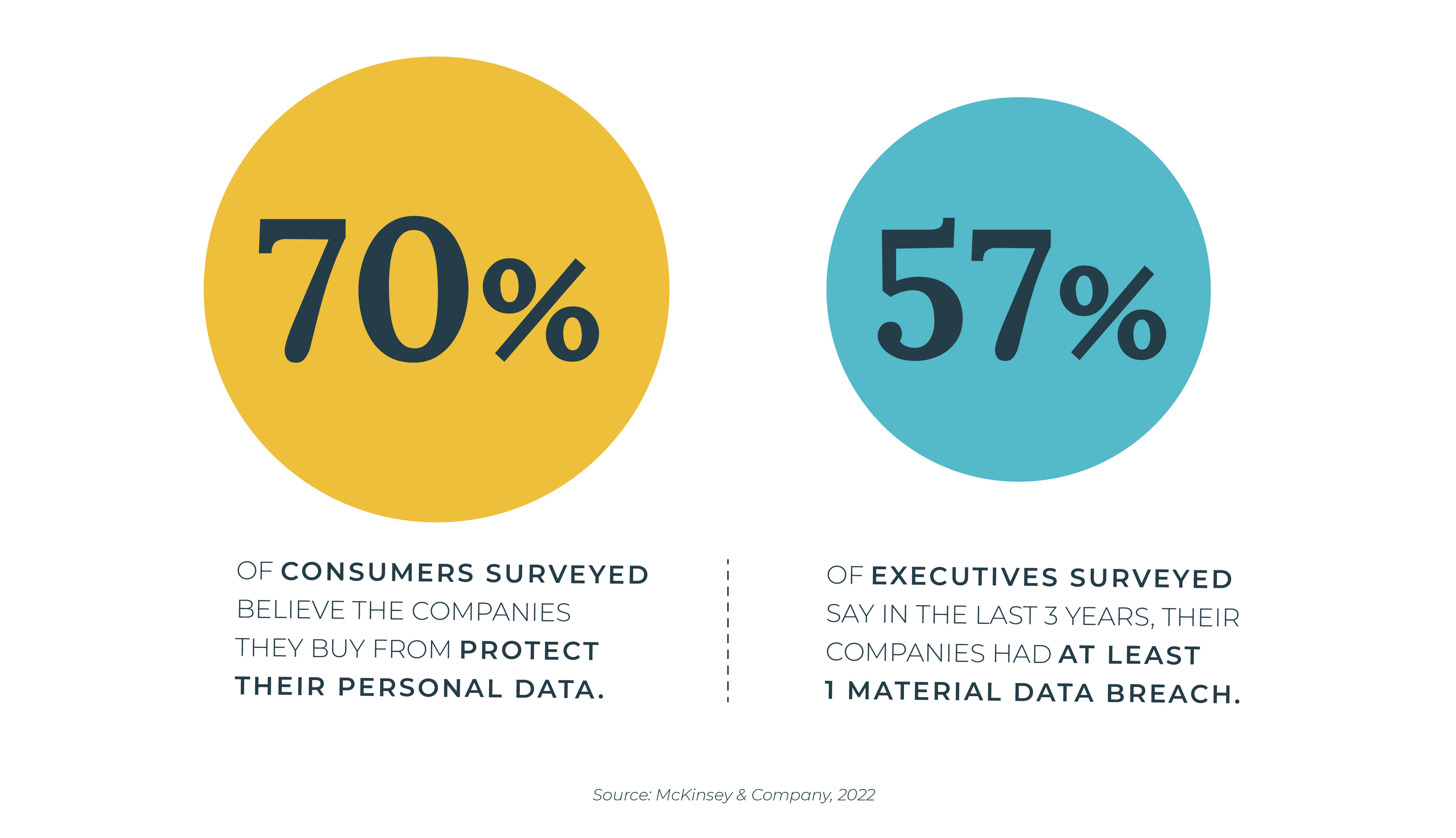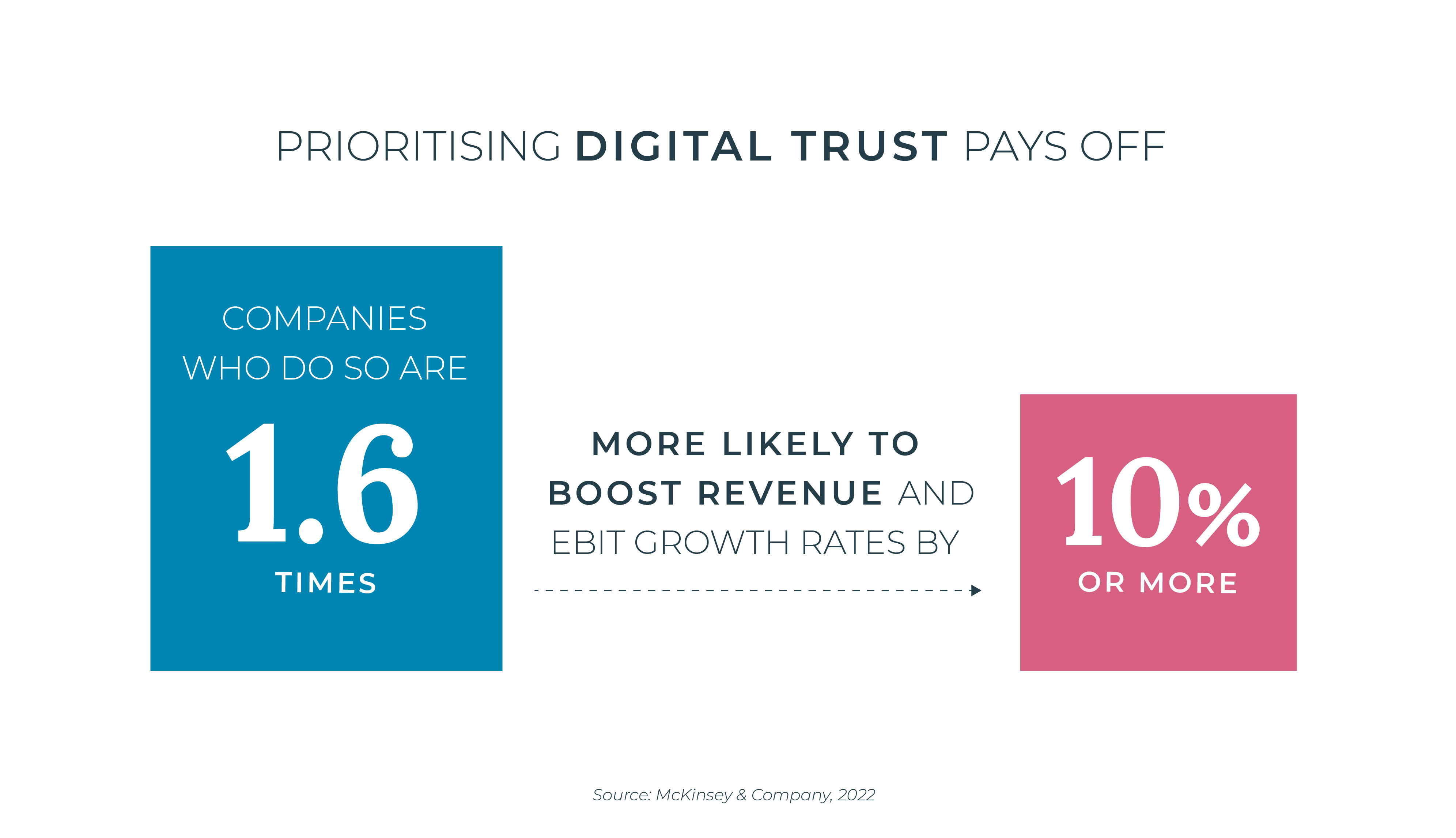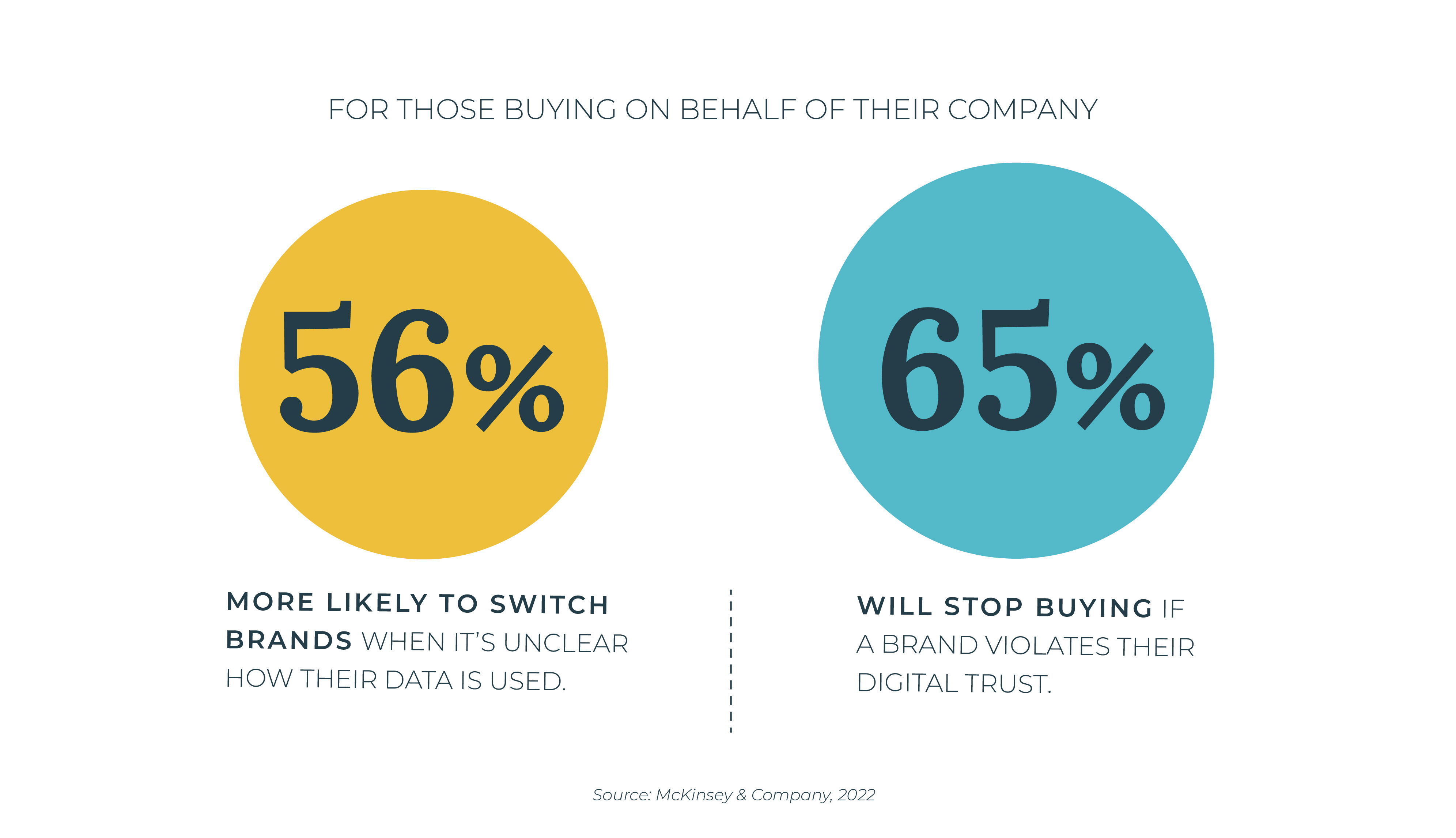A successful business starts with Digital Trust, Ethical Data and AI Policies
A successful business starts with Digital Trust, Ethical Data and AI Policies
McKinsey survey shows ‘why digital trust truly matters’
Around the world, every part of every business is being examined through a new lens: one of digital trust. Brands and retailers are facing increasing pressure to use fast-evolving technologies and address shifting consumer expectations. The everyday person is waking up to the dark realities of today’s surveillance economy, driving profits by leveraging people as the product.
The status quo of spying, tracking and selling my data and yours must end.
This has long been the stance at Empathy.co and among our Partners. Successful businesses are built on a solid foundation of digital trust. And now, this is finally being given the spotlight it deserves in the latest report from McKinsey: Why digital trust truly matters.
How do digital trust and ethical data practices impact business?
The McKinsey study defines digital trust as ‘confidence in an organisation to protect consumer data, enact effective cybersecurity, offer trustworthy AI-powered products and services, and provide transparency around AI and data usage.’ This survey shows that while most consumers think the companies they do business with are trustworthy, brands are falling short of these expectations.

Responsible data and AI policies set companies up for growth and competitive advantage. An ethical approach to consumer data shouldn’t solely be seen as a measure to prevent the loss of customers and their data, but to build and strengthen their relationship for the future.

Research also indicates that consumers value trustworthiness and data protection nearly as much as price and delivery time. For B2B purchasers, many only pick brands that have a reputation for protecting customer data. And if data use is unclear, they’ll find privacy-first alternatives.

How will this shape the future of ecommerce?
Many companies face problems protecting customer data because they deal with the fallout of data breaches after the fact instead of embracing Privacy by Design from the start. When digital products track or spy on the customer, this necessitates complex consent methods that ultimately lead to a stream of privacy violations. Beyond fines for non-compliance with GDPR, brands failing to protect people and their data lose loyal customers.
Our recommendation at Empathy.co is to approach privacy as a human right. We build solutions for ethical commerce search based on a trust-first vision: respecting people’s online privacy with offline standards. Consumers must be approached just how we expect to be approached, naturally and humanly. Understanding data privacy goes hand in hand with creating cutting-edge technology.
If there’s one clear takeaway from McKinsey, it’s this: companies cannot survive the cost of continuing to break consumer trust. The brands and retailers that embrace an ethical approach and rewrite the terms of engagement with the consumer will benefit from longer-lasting and more fruitful relationships.











